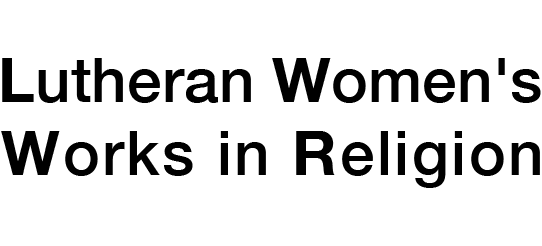Item Type: Book Chapters
BIBLICAL STUDIES
Elizabeth Huwiler "Song of Songs" In Proverbs, Ecclesiastes, Song of Songs. eds. Roland E. Murphy and Elizabeth Huwiler. Peabody MA: Hendrickson Publishers 1999Commentary on New International Version. Includes extensive introductory material, including theological relevance.
Argues for limited usefulness of Psalm 132 in theological reconstructions of ancient Israel.
CHURCH HISTORY AND HISTORICAL THEOLOGY
Brenda Llewellyn Ihssen "That which has been wrung from tears: Usury, the Greek Patristics and Catholic Social Teaching" In Reading Patristic Social Ethics: Issues and Challenges for 21st Century Christian Social Thought. eds. Johan Leemans, Brian Matz and Johan Verstraeten. Washington D.C.: Catholic University Press 2010Having brought together an international collection of patristic scholars and ethicists at the Katholieke Universiteit Leuven, editors Leemans, Matz and Verstraeten present in this collection peer reviewed essays written and presented at the 2007 Expert Seminary on Reading Patristic Social Ethics.
This compendium is a collection of select patristic writings that address issues of social justice, issues of concern for both the ancient and modern world, including: slavery, abuse, health and usury, to name a few. Each chapter includes a written explanation of the importance of the issue during the time of the patristics, and explains how they worked with issues of social justice within their sermons and theologies. Further, each chapter includes an annotated bibliography of both primary and secondary source material on each topic. Finally, each chapter concludes with select translated passages on each topic.
THEOLOGY
Laurie Jungling "Creation as God’s Call into Erotic Embodied Relationality" In Eros: Bodies, Desires, and Sexuality in Christianity. ed. Kamitsuka, Margaret. Minneapolis: Fortress Press 2010In many recent progressive theo-ethical discussions of the erotic, freedom has become the preeminent theme in articulations of sexual relationships. In this essay I submit that when considering the creator God in relation to the erotic, something is missing if only freedom is emphasized. The God of love, who creates all things, not only loves freely but faithfully as well.
CHURCH HISTORY AND HISTORICAL THEOLOGY
Kari Kloos "History as Witness: Augustine‘s Interpretation of the History of Israel in Contra Faustum and De Trinitate" In Augustine and History. Lanham, Md.: Lexington: 2008 : 31-51Augustine‘s anti-Manichean writings indicate a growing appreciation for the history of Israel as a witness to the one God. In particular, his exegetical response in the massive Contra Faustum demonstrates how a more serious engagement with the history of Israel shaped his theology.
BIBLICAL STUDIES
Carol LaHurd "Participating in the Body of Christ" In Church Unity and the Corinthian Correspondence. ed. Robert Henry Crewdson. Buena Vista, VA: Mariner 2008 : 67-76LaHurd reflects on the implications of Paul’s sacramental theology in 1 Corinthians 11 for current day ecumenical relations and for joint mission as the spiritual body of Christ.
THEOLOGY
Carol LaHurd "Walking by Faith: Witness and Dialogue in the Multi-faith Americas" In Multifaith Challenges: Facing the Americas ... and Beyond. ed. Mwakambana, Hance A. O.. Geneva: Lutheran World Federation 2002 : 51-64Acknowledging the growing religious pluralism in the Americas, LaHurd discusses the worth of interfaith dialogue, strategies for conducting such dialogue effectively, and ways the Bible can serve witness and dialogue with religious others.
The chapter presents an introduction to the history of Islam, the religion’s basic beliefs and practices, and Islam’s encounter with Christianity and modernity.
BIBLICAL STUDIES
Carol LaHurd "Re-Viewing Luke 15 with Arab Christian Women" In A Feminist Companion to Luke. ed. Amy-Jill Levine with Marianne Blickenstaff. London and New York: Sheffield Academic Press 2002 : 246-248Taking account of the religious perspectives of contemporary Arab Christian women and LaHurd’s own observations of women’s lives in Yemen, this chapter reinterprets Luke 15 in dialogue with other feminist and anthropological readings and finds new insights into women’s roles and informal power as displayed in the parables of lost sheep, lost coin, and lost son.

